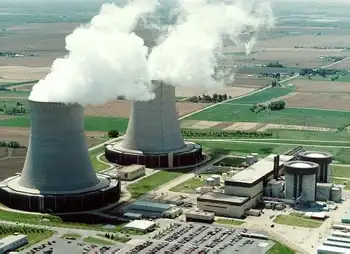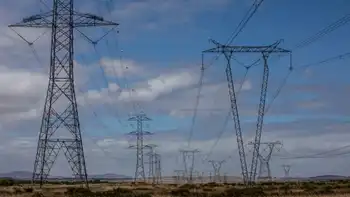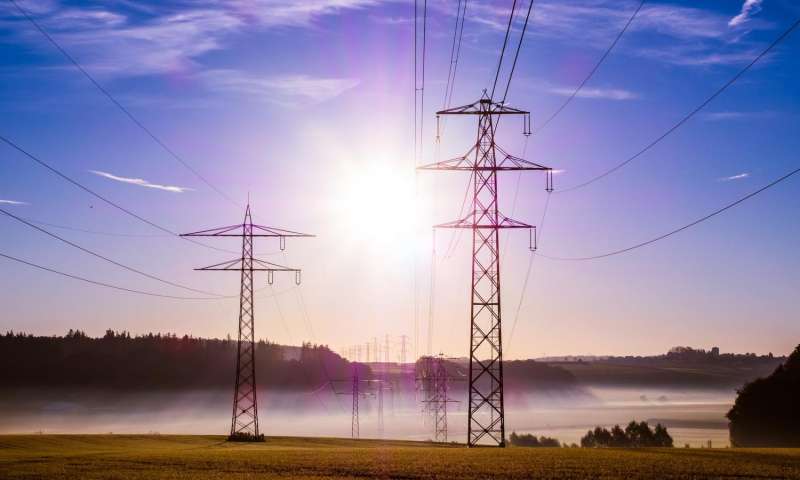Bush Seeks to Ban Some Nations From All Nuclear Technology
By Globe and Mail
NFPA 70e Training
Our customized live online or in‑person group training can be delivered to your staff at your location.

- Live Online
- 6 hours Instructor-led
- Group Training Available
In their public statements and background briefings in recent days, Mr. Bush's aides have acknowledged that Iran appears to have the right - on paper, at least - to enrich uranium to produce electric power. But Mr. Bush has managed to convince his reluctant European allies that the only acceptable outcome of their negotiations with Iran is that it must give up that right.
In what amounts to a reinterpretation of the Nuclear Nonproliferation Treaty, Mr. Bush now argues that there is a new class of nations that simply cannot be trusted with the technology to produce nuclear material even if the treaty itself makes no such distinction.
So far the administration has not declared publicly that its larger goal beyond Iran is to remake a treaty whose intellectual roots date back to the Eisenhower administration, under the cold war banner of "Atoms for Peace." To state publicly that Iran is really a test case of Mr. Bush's broader effort, one senior administration official said, "would complicate what's already a pretty messy negotiation."
But just three days before the White House announced its new approach to Iran - in which it allowed Europe to offer broader incentives in return for an agreement to ask the United Nations for sanctions if Iran refuses to give up the ability to make nuclear material - Mr. Bush issued a statement that left little doubt about where he was headed.
The statement was advertised by the White House as a routine commemoration of the treaty's 35th anniversary, and a prelude to a meeting in May in New York to consider its future. It never mentioned Iran by name. But after lauding the past accomplishments of the treaty, also known as the N.P.T., in limiting the spread of nuclear arms, Mr. Bush went on to say, "We cannot allow rogue states that violate their commitments and defy the international community to undermine the N.P.T.'s fundamental role in strengthening international security.
"We must therefore close the loopholes that allow states to produce nuclear materials that can be used to build bombs under the cover of civilian nuclear programs."
On Sunday, his new national security adviser, Stephen J. Hadley, took the next step, making clear the connection to the current crisis with Iran. Yes, he said on CNN, the Iranians say their nuclear work is entirely for peaceful purposes. He cited no new evidence of a secret Iranian project to build a bomb, though that is what the Central Intelligence Agency and officials like Mr. Hadley insist is happening. (Inspectors from the International Atomic Energy Agency say they join in the suspicion, but have no compelling evidence.)
But Mr. Hadley emphasized that Iran's leaders "keep their secrets very well." They hid much of their enrichment activity from international inspectors for 18 years, then insisted that it was not really for weapons, he said. He said that "raises serious suspicions" about Iran's true intent. Now, he said, the Europeans have come around to the view that "the best guarantee is for them to permanently abandon their enrichment facilities."
Mr. Bush could have called for renegotiating the treaty. But in background interviews, administration officials say they have neither the time nor the patience for that process. By the time all 189 signers come to an agreement, noted one official who left the White House recently: "The Iranians will look like the North Koreans, waving their bombs around. We can't afford to make that mistake again." (North Korea has declared it is no longer a party to the treaty, though it signed it. Israel, India and Pakistan never signed it.)
After a visit to Tehran last week for a conference that Iran sponsored to explain its nuclear ambitions, George Perkovich, a nuclear expert at the Carnegie Endowment for International Peace in Washington, said he had concluded that Mr. Bush had the right instinct, but might not be taking the right approach.











